
In November 1891, entrepreneurs Bob Walker Smith and Albert Eadie buy George Townsend & Co. of Hunt End, Redditch. Townsend’s is a well-respected needle manufacturer of almost 50 years standing which has recently begun manufacturing bicycles.

The duo win a contract to supply precision parts to the Royal Small Arms Factory of Enfield, Middlesex. To celebrate this prestigious order, they rename their undertaking the Enfield Manufacturing Company Ltd. and call their first Bob Walker Smith designed bicycle, the Enfield. The following year, their bicycles are renamed Royal Enfields and the trademark ‘Made Like A Gun’ is introduced.

Bob Walker Smith designs the company’s first motorised vehicle. Known as a quadricycle, it is built around two sturdy bicycle frames and uses a proprietary 1 1/2 hp De Dion engine. The company finalises its trading name as The Enfield Cycle Co. Ltd., a name it is to use for the following 70 years.

Royal Enfield delves into motorsport when one of its quadricycles enters the inaugural 1000 Mile Trial. Following a torturous cross-country route from London to Edinburgh and back, the event does much to convince the British public of the viability of motorised transport.

The first Royal Enfield motorcycle is produced. Designed by Bob Walker Smith and Frenchman Jules Gobiet, it is launched at the Stanley Cycle Show in London. The 1 1/2 hp engine is mounted in front of the steering head and the rear wheel driven by a long rawhide belt.
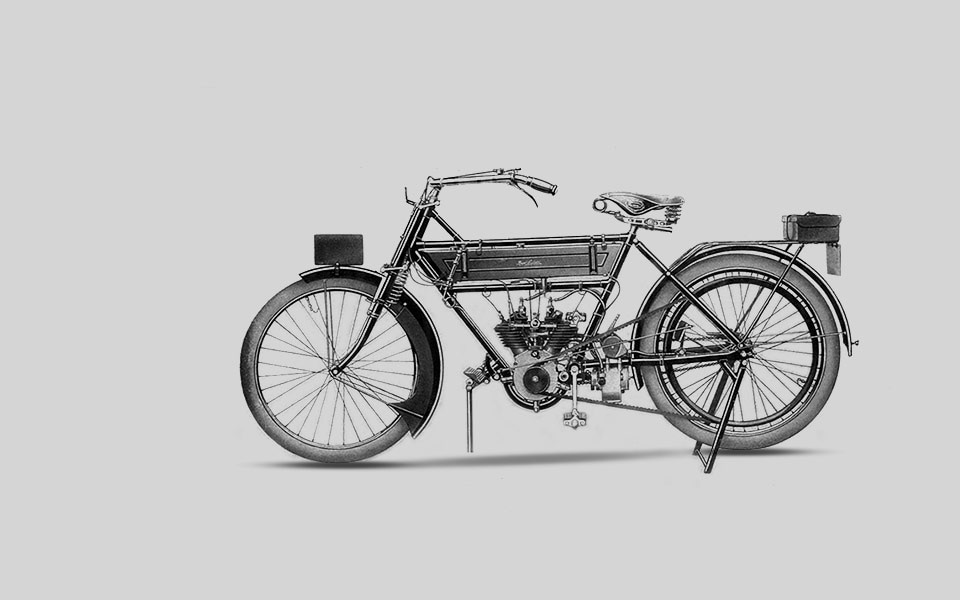
Royal Enfield’s first V-twin, using a 297cc Swiss-made Motosacoche engine, is launched at the Stanley Cycle Show. The model achieves numerous competition successes the following year, including in the John O’ Groats to Lands End Trial.

Royal Enfield's first 2-stroke motorcycle goes into full production. As Britain becomes embroiled in World War I, production of the company’s biggest motorcycle, the 770cc 6 hp V-twin, takes precedence. During the conflict, the company supplies motorcycles to the British, Belgian, French, United States and Imperial Russian armies.

Continuous development results in a range of 8 models, including the launch of the Sports Model 351, the first Royal Enfield 350cc OHV 4-stroke motorcycle with foot operated gear change. A unique 225cc 2-stroke step-through 'Ladies Model' is also introduced.
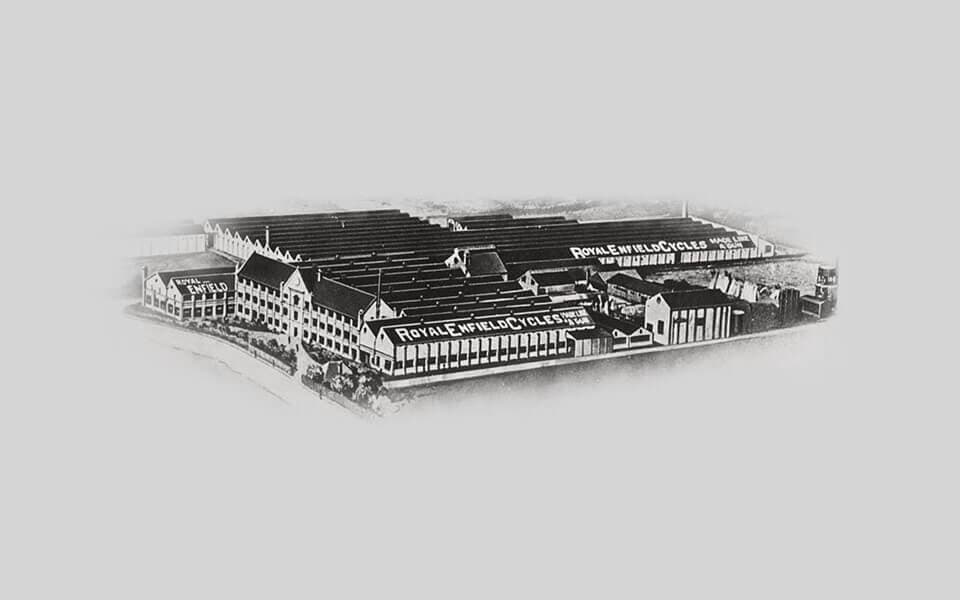
A major fire breaks out at the 18-acre Redditch factory. The company's own fire brigade manages to fight the flames which threaten to engulf the entire plant.

Royal Enfield adopts saddle tanks in place of outmoded flat tanks. It is also one of the first manufacturers to change its front fork system from a Druid design to centre-sprung girder forks.

The decade begins with a diverse eleven model range, from the 225cc 2-stroke Model A to the 976cc V-twin Model K. New 350 and 500cc side-valve and overhead valve machines with dry-sump lubrication are also produced.

The legendary "Bullet" motorcycle is born. It is first displayed in November 1932 at the Olympia Motorcycle Show in London. Three versions are produced: 250, 350 and 500cc, all with inclined 'sloper' engines, twin-ported cylinder heads, foot operated gear change and high compression pistons.
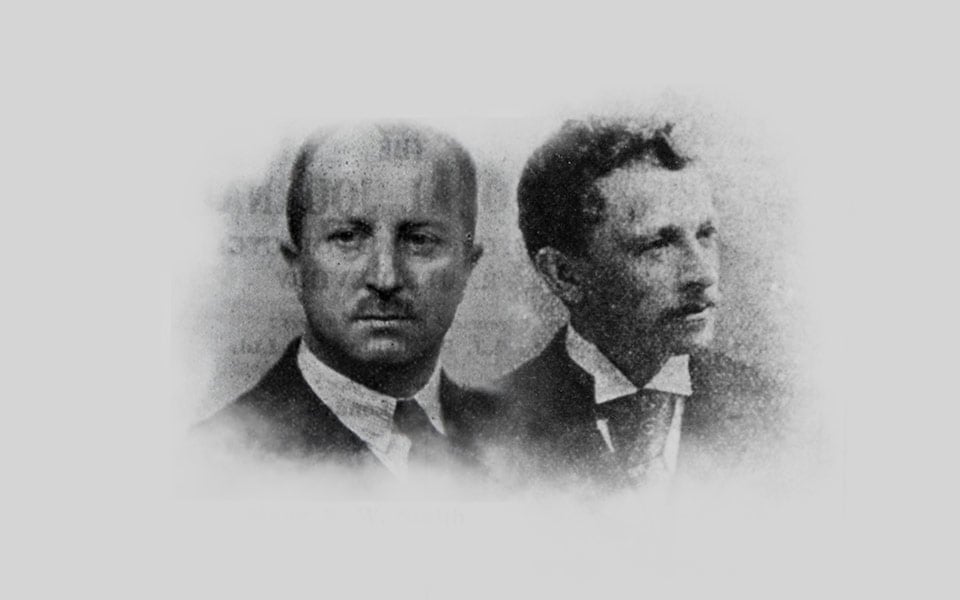
Founding partner and joint Managing Director, Bob Walker Smith, passes away. His son, Major Frank Smith. who had been joint Managing Director with his father for a number of years, assumes full control of The Enfield Cycle Company.
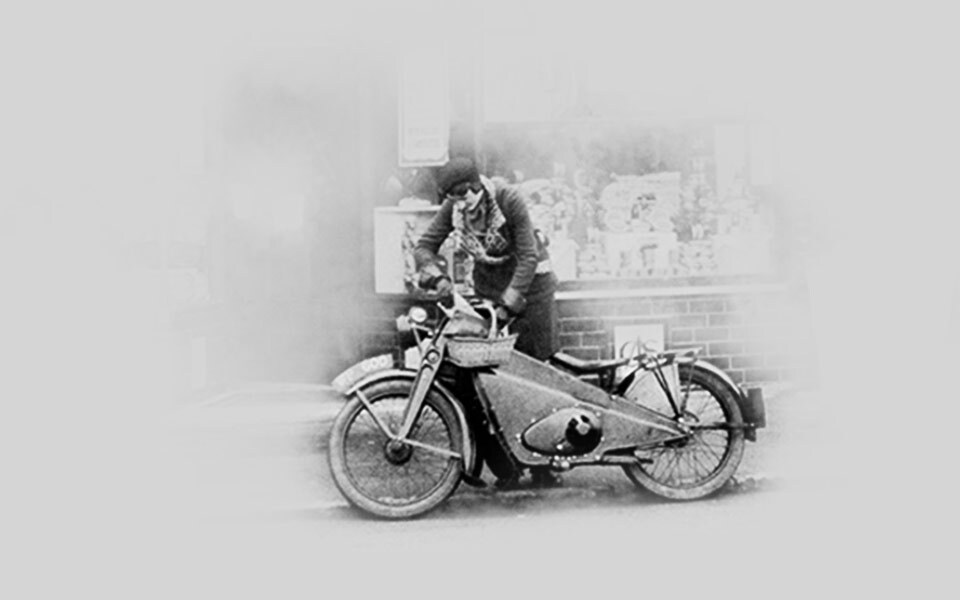
The groundbreaking Model Z 'Cycar' goes on sale. Aimed at commuters, this 148cc 2-stroke features a fully enclosed engine and legshields to protect its rider from the worst of the elements.

The 500cc Bullet is radically changed with the release of the Model JF. It features an upright engine with a 4-valve cylinder head. A sports version, with a bronze cylinder head, is available to special order.

Royal Enfield produces large quantities of military motorcycles, bicycles, generators and ant-aircraft gun predictors during the Second World War. The most iconic model is the 125cc 'Airborne' motorcycle known as the Flying Flea. These 126cc 2-strokes can be loaded into specially fabricated parachute cradles and dropped with paratroops behind enemy lines.
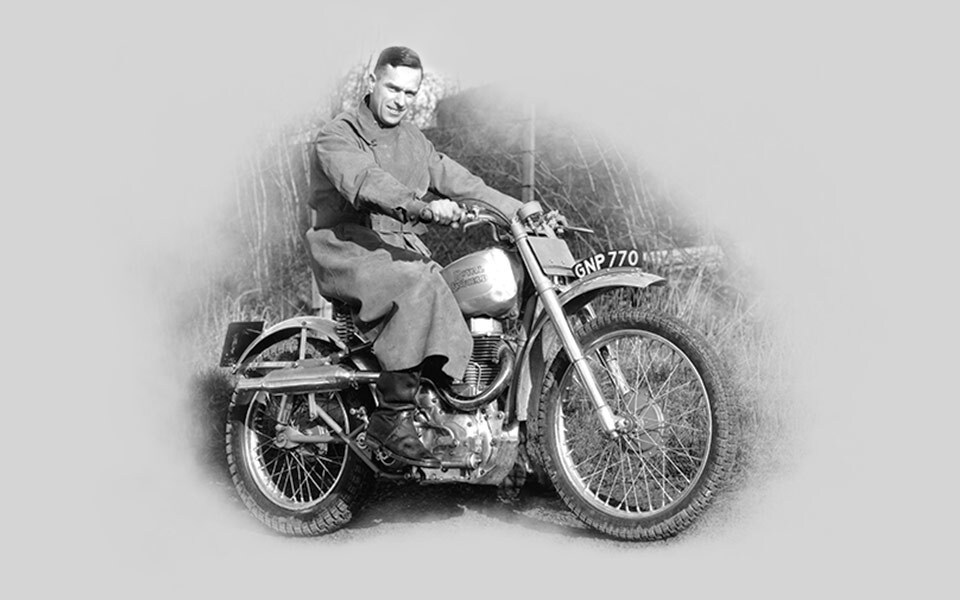
The post-war 350cc Bullet prototype, with radical oil-damped swinging arm rear suspension, is previewed in the Colmore Cup Trial of February 1948. Two Bullets form part of the victorious British Trophy team in the 1948 ISDT (International Six Days Trial), held in Italy. Both their riders win gold medals.
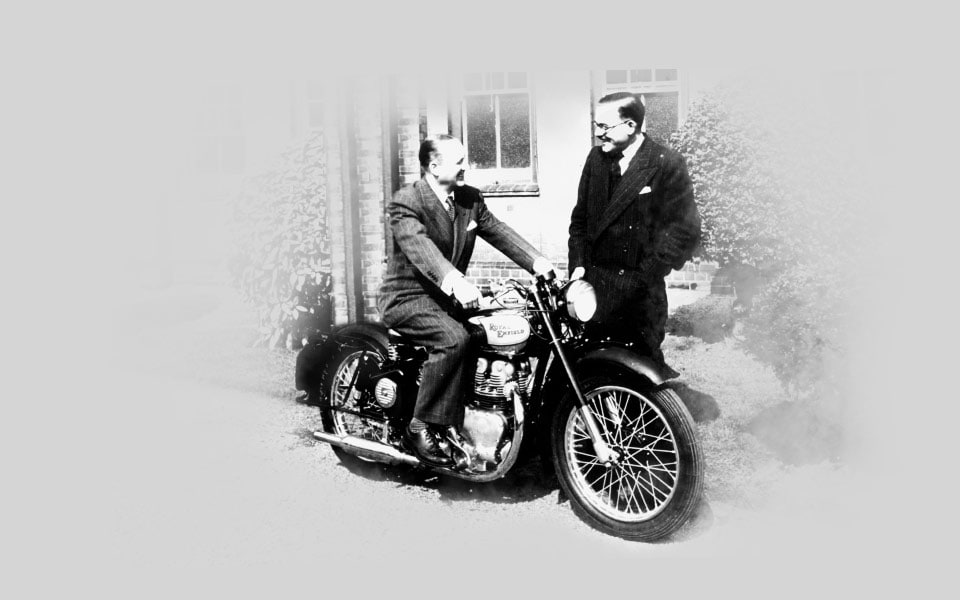
The new 350cc Bullet and 500 Twin models are launched in the UK. Both bikes share the same frame, swinging arm suspension, telescopic front forks and gearbox. K. R. Sundaram Iyer launches Madras Motors to import British motorcycles into India, including Royal Enfields.

Royal Enfield's star rider, Johnny Brittain, wins the prestigious Scottish Six Days Trial on his 350cc Bullet, HNP 331.
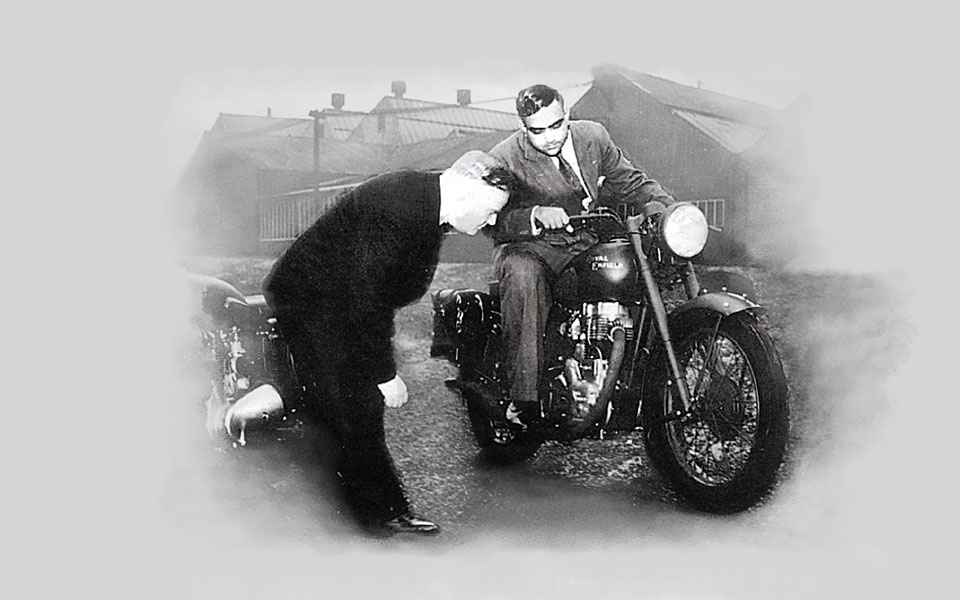
Madras Motors receives an order from the Indian Army for 500 350cc Bullets. The motorcycles arrive from Redditch in early 1953 and prove to be a great success, being both hardy and easy to maintain.
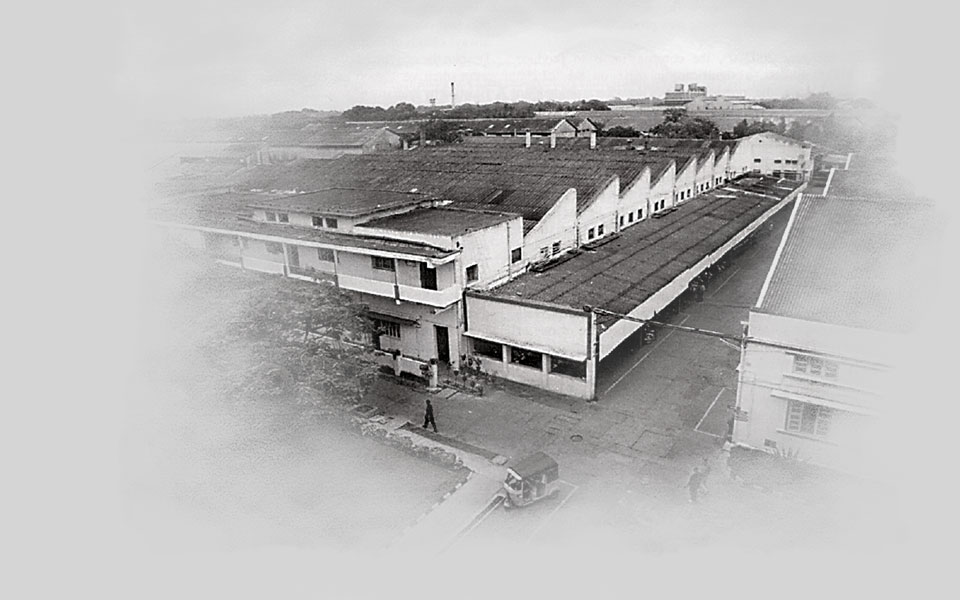
The Redditch company partners Madras Motors in India to form 'Enfield India'. Work commences on the construction of a purpose-built factory at Tiruvottiyur, near Madras.
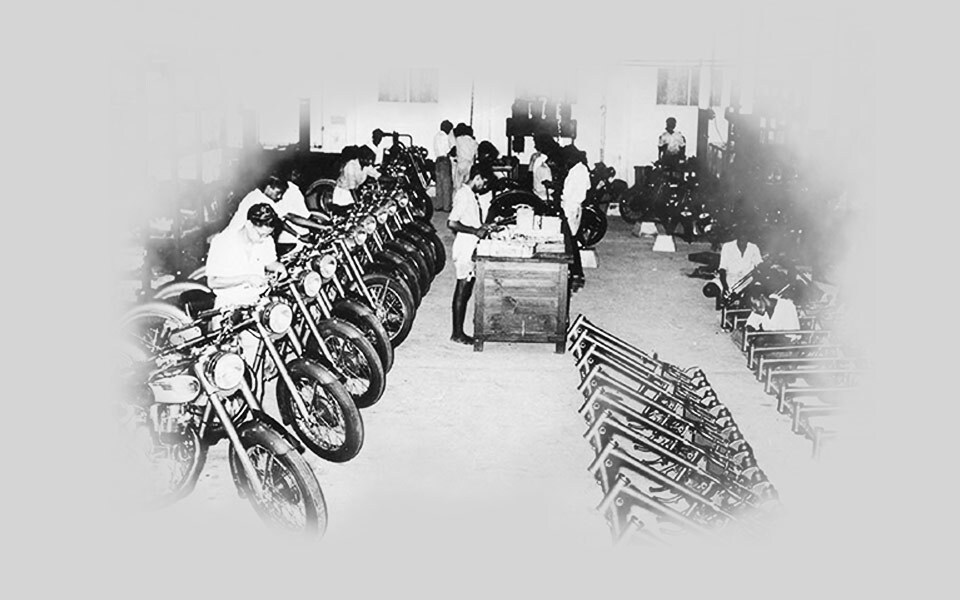
The Tiruvottiyur factory opens and Bullets begin to be manufactured under license. Initially, these machines are shipped from England in kit form then assembled in the Madras plant. A total of 163 Enfield India Bullets are built by the end of the year.
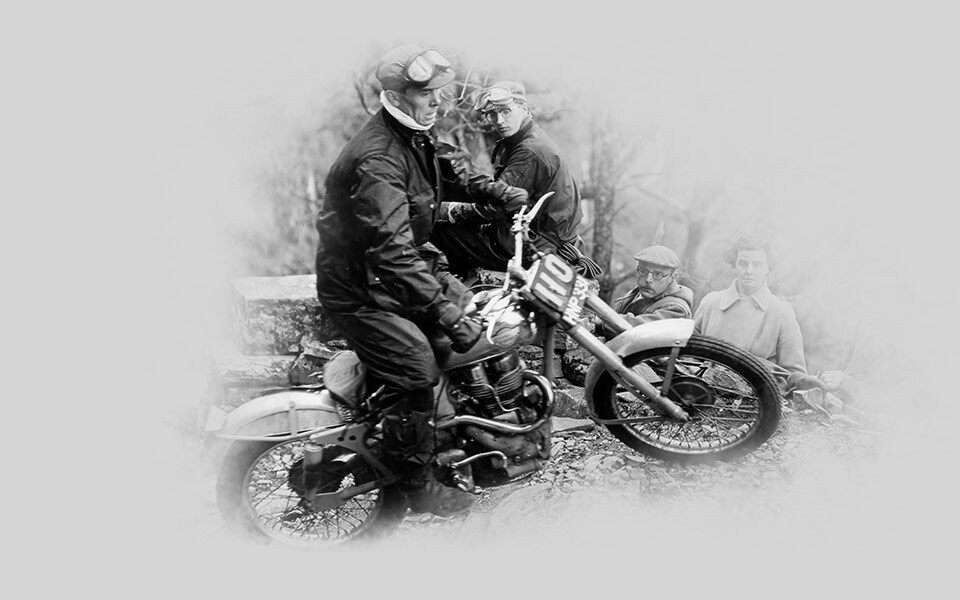
Johnny Brittain wins the Scottish Six Days Trial on a Bullet for the second time and also finishes top of the British trials championship. The 250cc Crusader model is launched in Britain. Producing 13 bhp, the motorcycle features a unit construction engine and alternator electrics with coil ignition.

The iconic Continental GT café racer is launched to great acclaim when a team of journalists ride one from John O’ Groats to Lands End in under 24 hours, including 8 laps of the Silverstone circuit. The GT features a fibreglass racing petrol tank, clip-on handlebars, rear sets, a humped race seat, rev counter and a swept-back exhaust.

With only two models left in production at the start of the year – the 250cc Continental GT and the 736cc Interceptor – Royal Enfield’s Redditch facility closes and the site sold to developers. Production of the Interceptor continues at Enfield’s underground facility at Upper Westwood, near Bradford on Avon, until its closure in June 1970.
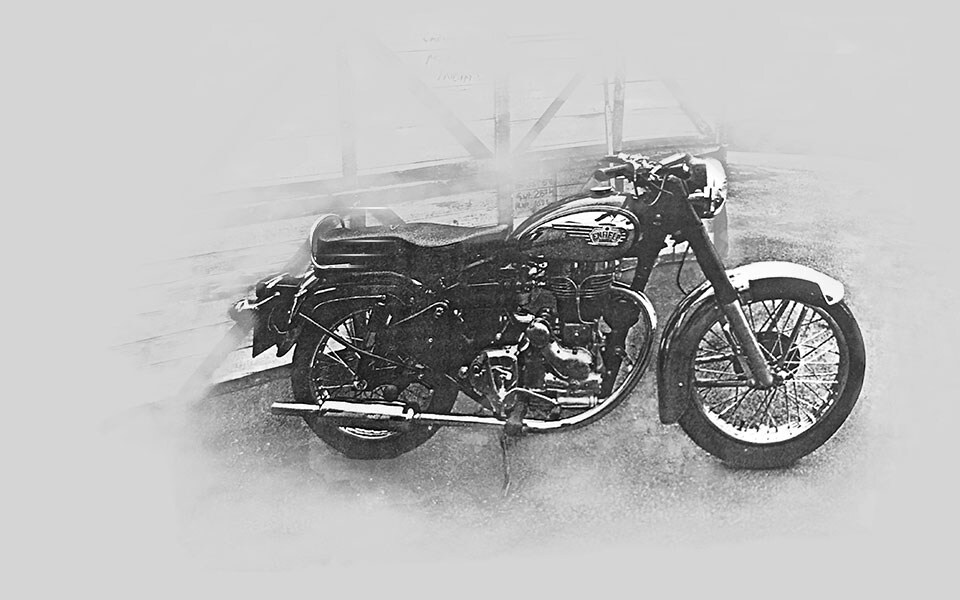
Enfield India begins exporting the 350cc Bullet to the UK and Europe. Sales grow rapidly as the bike develops a following amongst classic motorcycle enthusiasts.

A new 24 bhp 500cc Bullet is released. The bike is primarily aimed at export markets where it is available in Classic, Deluxe and Superstar trim.

Enfield India produces the world's first and only mass-manufactured diesel motorcycle. Known as the Enfield Diesel, it uses a highly fuel efficient 325cc power unit installed in the standard Bullet rolling chassis.
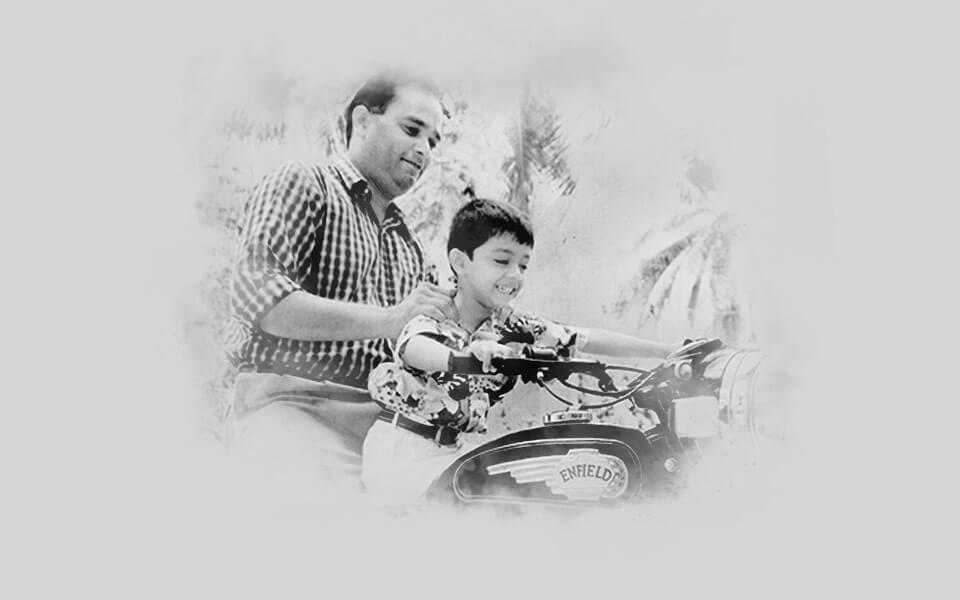
Commercial vehicle and tractor manufacturer, The Eicher Group, acquires Enfield India Limited. Eicher has roots in India dating back to 1948. It renames the company Royal Enfield Motors Limited.
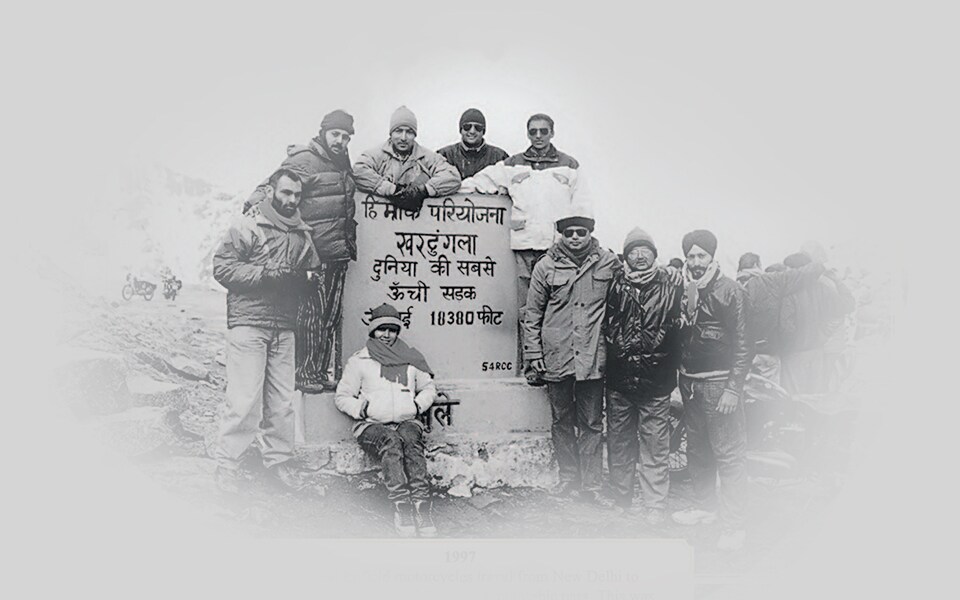
Forty Royal Enfield motorcycles climb to Khardung La, the world’s highest motorable pass, setting a precedent for epic rides across some of the world’s most difficult terrain and creating a blueprint for the annual Himalayan Odyssey ride.
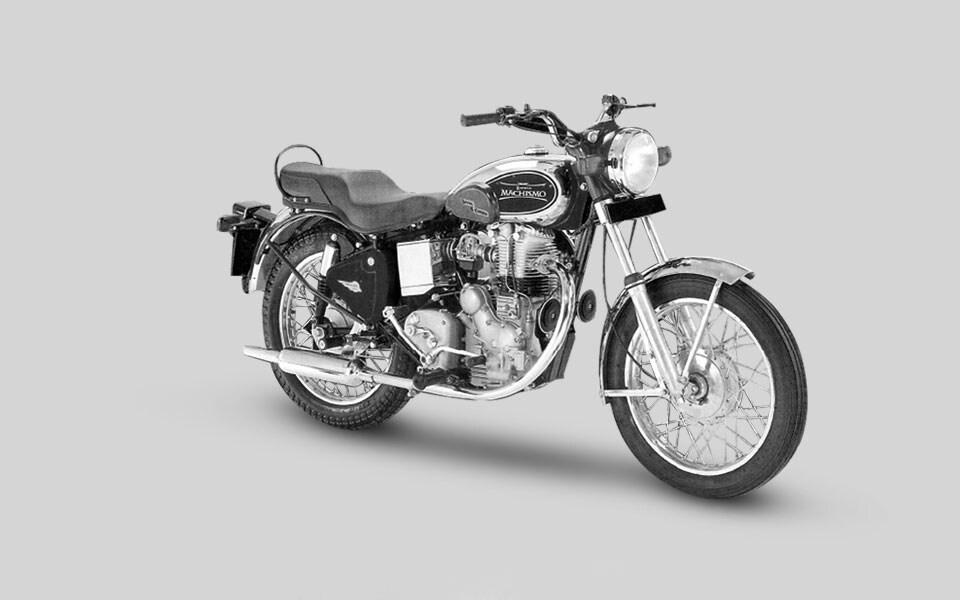
Utilising the design skills of Austrian company AVL, production of a revised 350cc all-aluminum lean-burn Bullet engine, known as the A350, begins at a new Royal Enfield plant near Jaipur, Rajasthan.

The Daredevils, the motorcycle display team of the Indian Army Corps of Signals, Jabalpur, forms a human pyramid of 201 men on ten 350cc Bullets. They ride a distance of more than 200 metres to set a new world record.

The Thunderbird, a stylish lean burn cruiser, is launched. It features the first 5-speed gearbox used on a Royal Enfield since the 1960s. More than a 1000 Royal Enfield motorcycles of all ages descend on Redditch for the Royal Enfield Owner’s Club ‘Redditch Revisited’ event.

The Electra X, an export Bullet with a 500cc version of the all-alloy lean burn engine, goes on sale. The retro-styled ‘Bullet Machismo’ is rated the ‘No.1 Cruiser’ in a TNS Autocar survey.

Royal Enfield celebrates its 50th anniversary in India with the release of commemorative Thunderbird and Bullet Electra models and ‘The Legend Rides On’ coffee table book.

The Thunderbird Twinspark is launched in India with the new Unit Construction Engine (UCE). Royal Enfield begins exporting the Classic, India’s first 500cc EFI, Euro III-compliant motorcycle, to European markets.

The 500cc UCE engine is launched in India. The retro-styled Classic version immediately achieves cult status and sales grow rapidly.
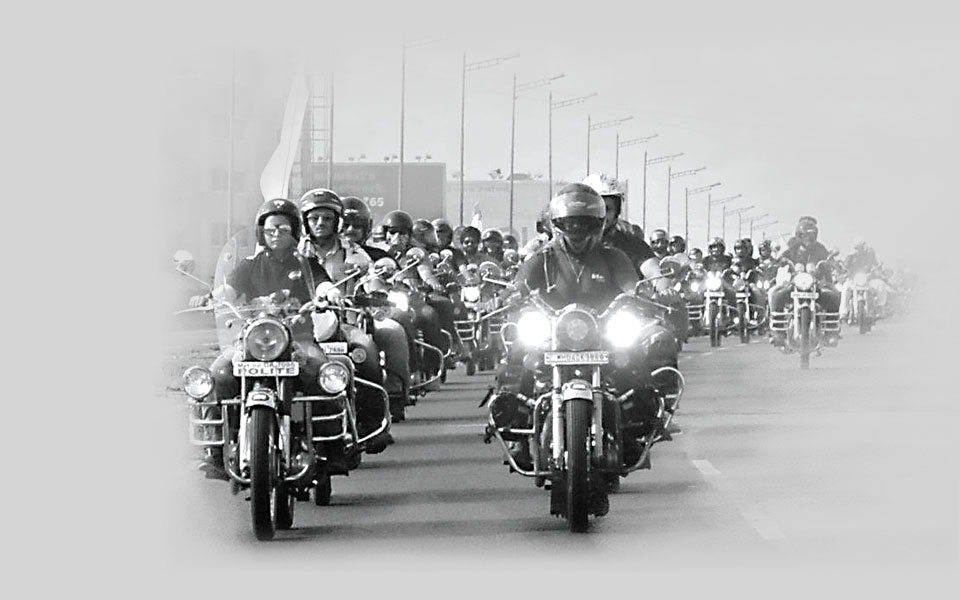
Royal Enfield riders around the world are encouraged to go for a ride on the inaugural ‘One Ride’ event. It becomes an annual ride, taking place on each first Sunday in April, The company acquires 50 acres of land at Oragadam for its new plant. A factory organised trip crosses the Nepalese border for the first time with ‘Tour of Nepal’.

Royal Enfield launches its first highway cruiser, the all-black Thunderbird 500. Work on the new Oragadam factory continues briskly while the Tiruvottiyur plant sets a new production record to meet 113,000 motorcycle sales.
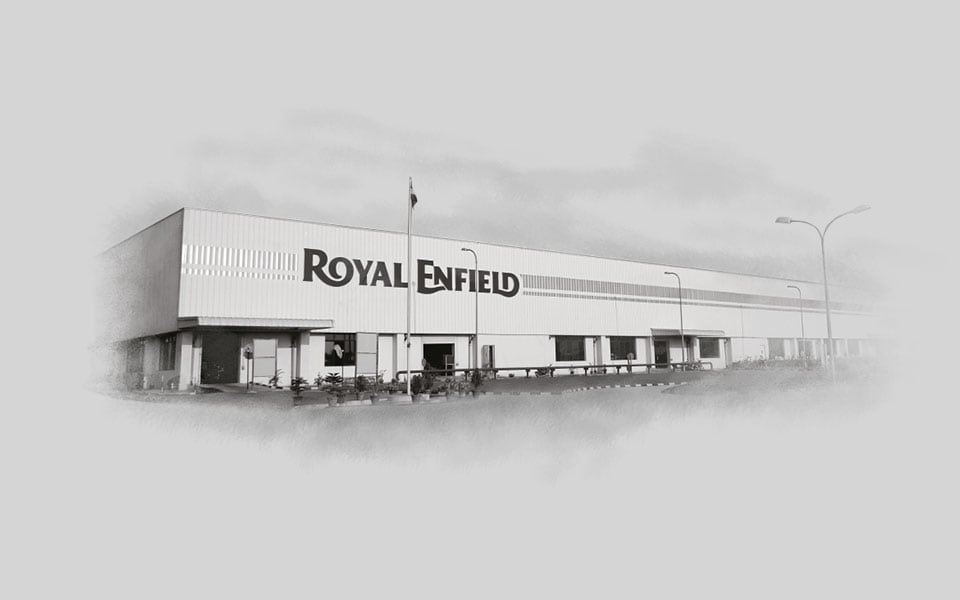
Manufacturing commences at Oragadam, Tamil Nadu. This state-of-art factory, which includes a robotic paint facility, will be the nucleus of Royal Enfield’s future global ambitions.

Forty-eight years after developing its first production café racer, Royal Enfield rolls out the all-new Continental GT. Featuring a cradle frame designed by Harris Performance and a 535cc UCE engine, this new café racer becomes the starting point for numerous custom builds.

Royal Enfield introduces a new retail experience in India with the opening of the first-of-its-kind exclusive gear store at Khan Market, New Delhi.

The company acquires Harris Performance, a renowned British motorcycle design and fabrication firm, to enhance its engineering and product design capabilities.
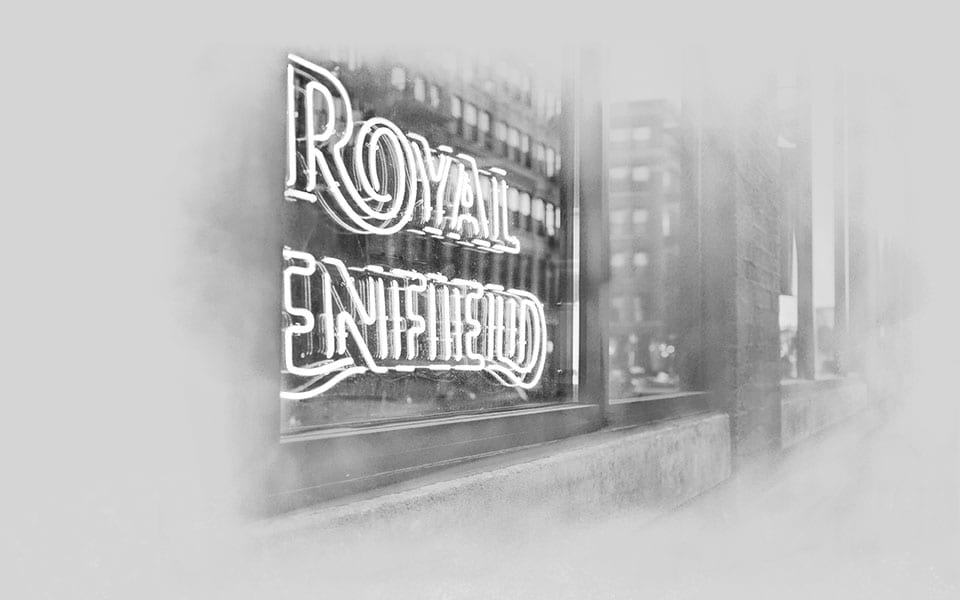
Royal Enfield North America is established. With headquarters in Milwaukee, Wisconsin, it’s the company’s first direct distribution subsidiary outside of India.

Royal Enfield debuts the Himalayan, its first adventure motorcycle. With an all-new 411cc SOHC engine and long reach suspension, it’s designed to give adventurous riders the right tool for all roads and no roads.
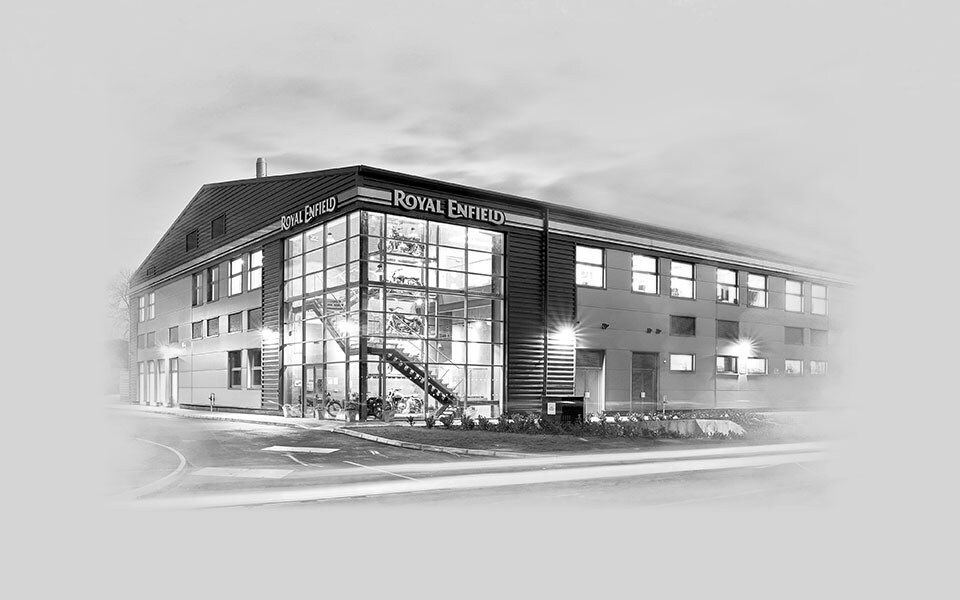
The new Royal Enfield Technology Centre opens at Bruntingthorpe Proving Ground, near Leicester in the UK. A team of over 100 engineers, designers and testers begin work on research, development and long-term product strategy.
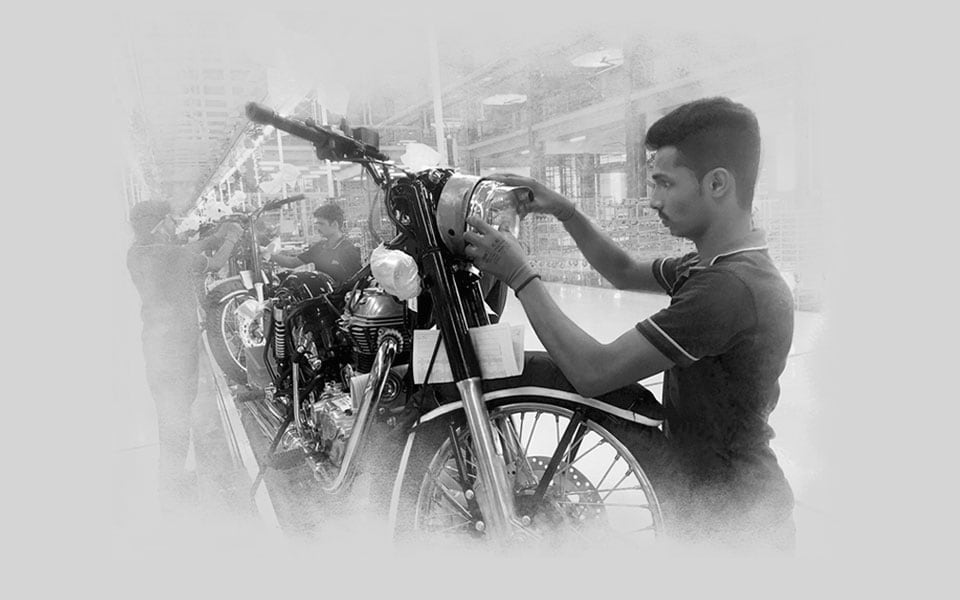
Production commences at the company’s third plant. Located at Vallam Vadagal, near Chennai, this world-class manufacturing facility is dedicated to producing Royal Enfield 350cc machines.
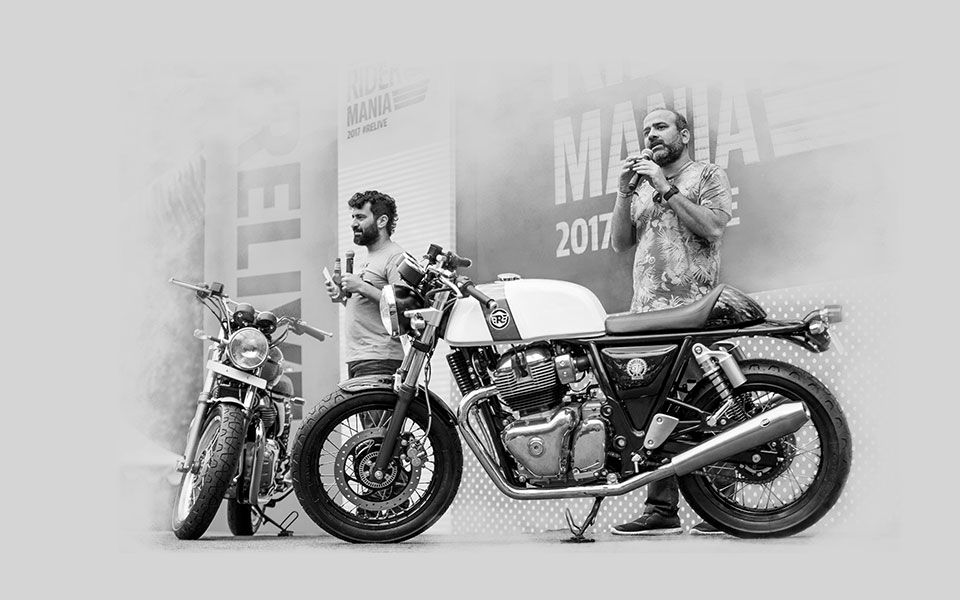
The new 650cc Royal Enfield Interceptor and Continental GT twins are unveiled at the EICMA Motorcycle Show in Milan, Italy, and at Rider Mania in Goa, India. The company opens its first café, called the Royal Enfield Garage Café, in Baga, Goa.
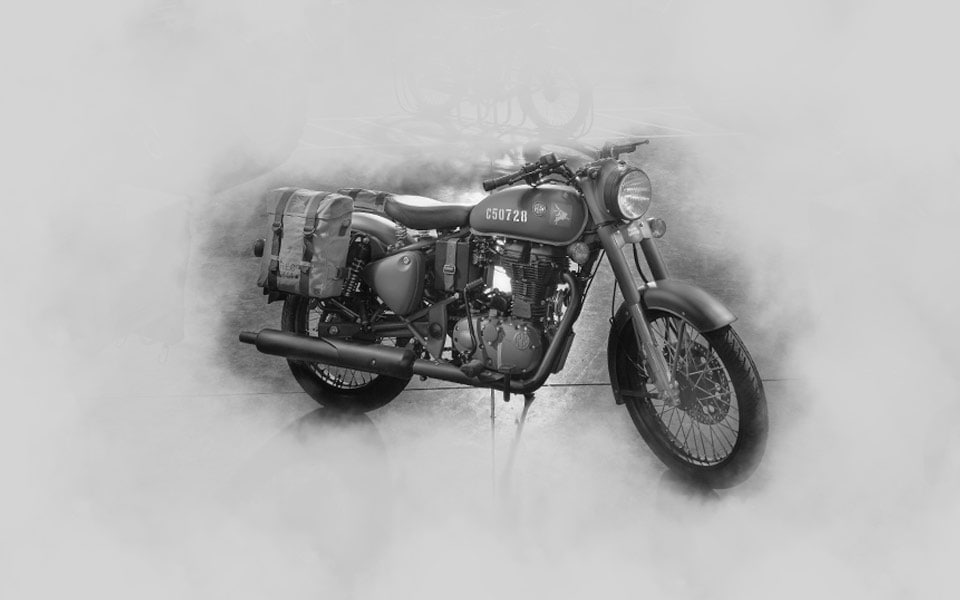
The Royal Enfield Classic 500 Pegasus, a homage to the WWII Royal Enfield Flying Flea, is launched at the Imperial War Museum, Duxford, UK. Limited to just 1000 individually numbered motorcycles worldwide, the Indian market allocation of 250 machines sells in under 3 minutes.
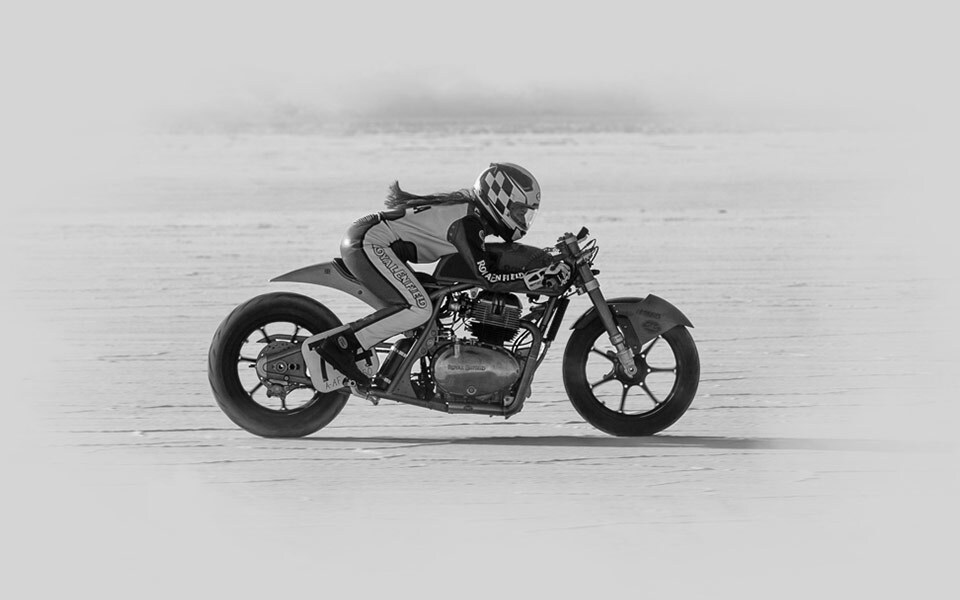
Cayla Riva, an 18-year-old racer from California, sets a new land speed record of 157.053 mph during Speed Week at the Bonneville Salts Flats. Her bike, a Continental GT 650 twin, is specially prepared for Bonneville with S&S Cycle engine tuning.and a Harris Performance frame.
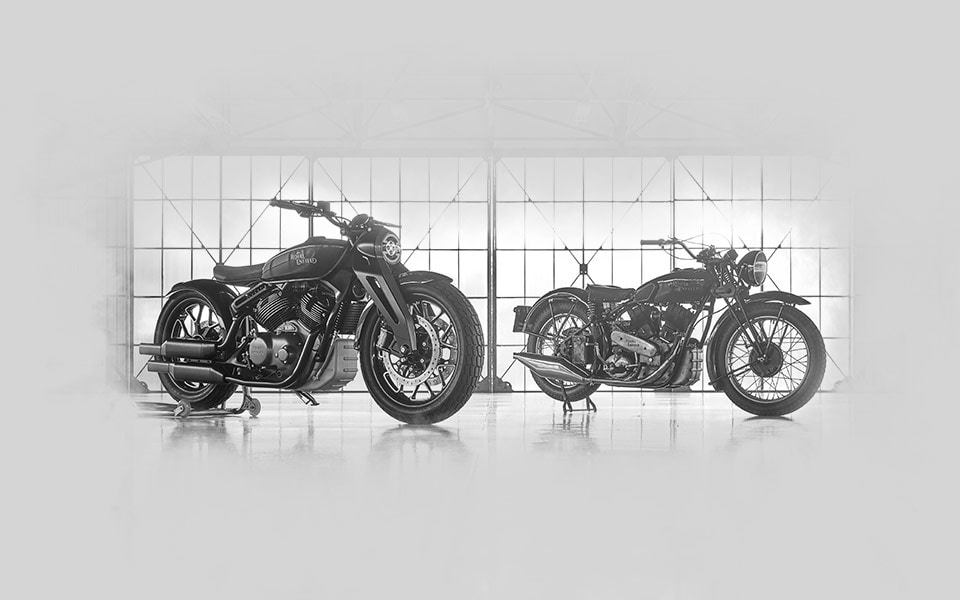
With design cues taken from the 1140cc KX V-twins of the late 1930’s, the 838cc KX Concept V-twin demonstrates the capabilities of the design team at the UK Technology Centre. Featuring girder forks with an integrated headlight and a single-sided softtail rear, it is the star of the show when unveiled at EICMA.
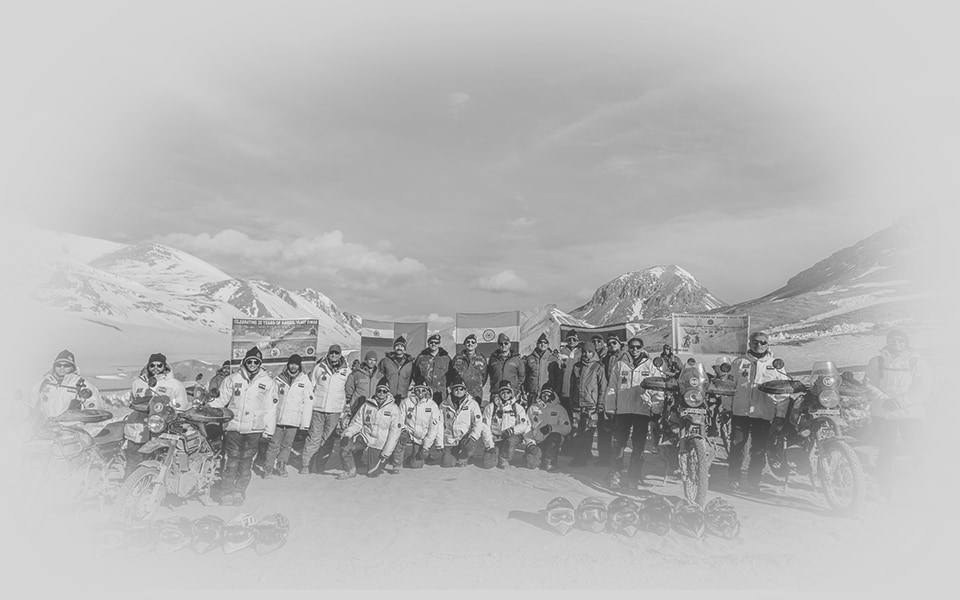
A team of eleven Indian Army and Royal Enfield riders summit the 5,540m Karakoram Pass on Himalayans despite treacherous snow, ice and temperatures below -30°. It is the first time the pass has been reached by motorcycle. The Bullet Trials Works Replica 500 is launched as an homage to Johnny Brittain’s all-conquering trials mounts of the 1950s.
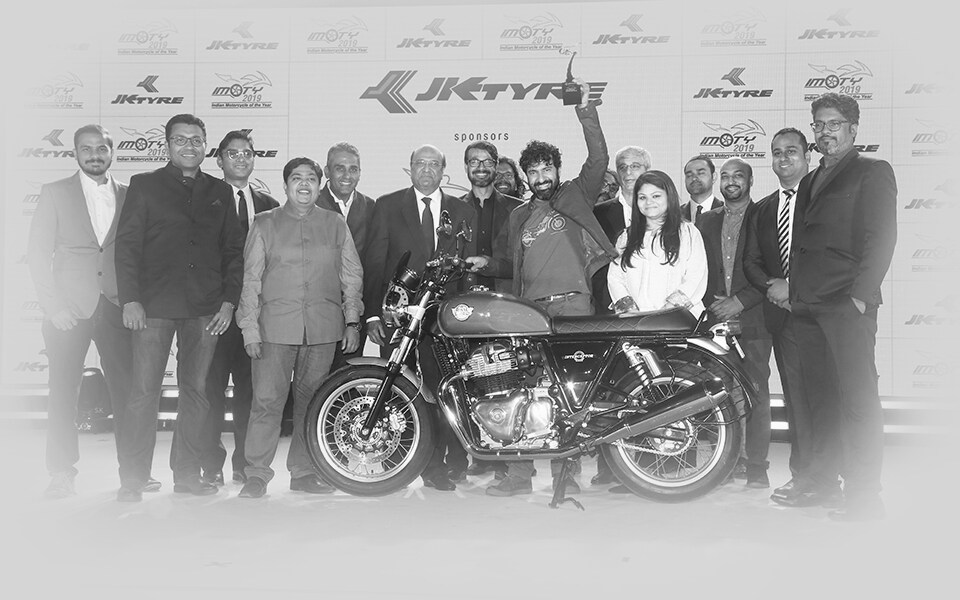
The Interceptor 650 wins the prestigious Indian Motorcycle of the Year award. The 650 twin is also named Bike of the Year in the Times Auto Awards, Motorcycle of the Year by Autocar and Two Wheeler of the Year by Bike India. It is voted Best Modern Classic Middleweight in Thailand and Best Retro Bike of the Year by MCN in the UK.
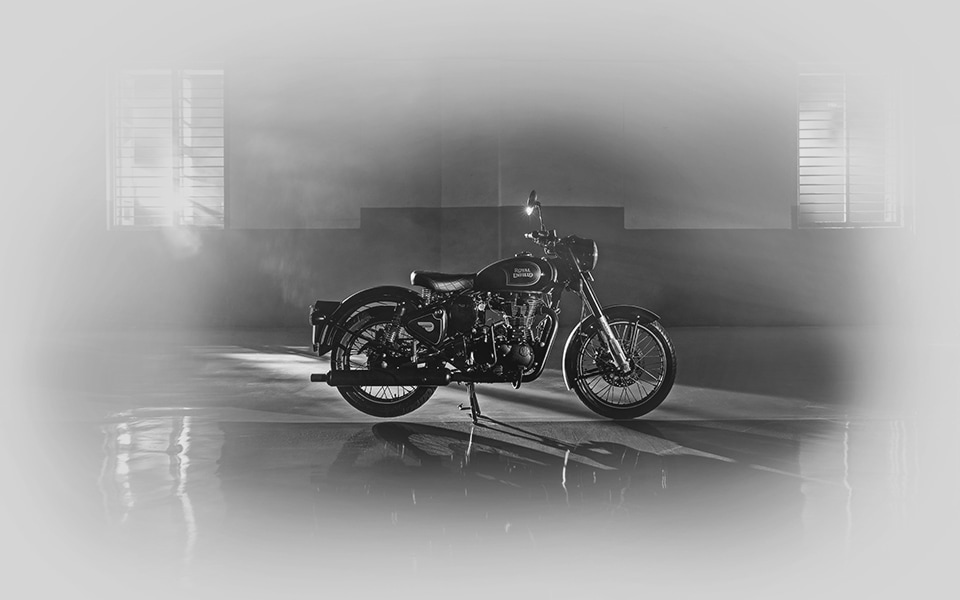
Production of the 500cc UCE engine comes to an end. Its swansong is the limited edition Classic 500 Tribute Black. A new Royal Enfield CKD assembly line is set up in Buenos Aires, Argentina. The President of Argentina, Alberto Fernández, attends the opening ceremony.
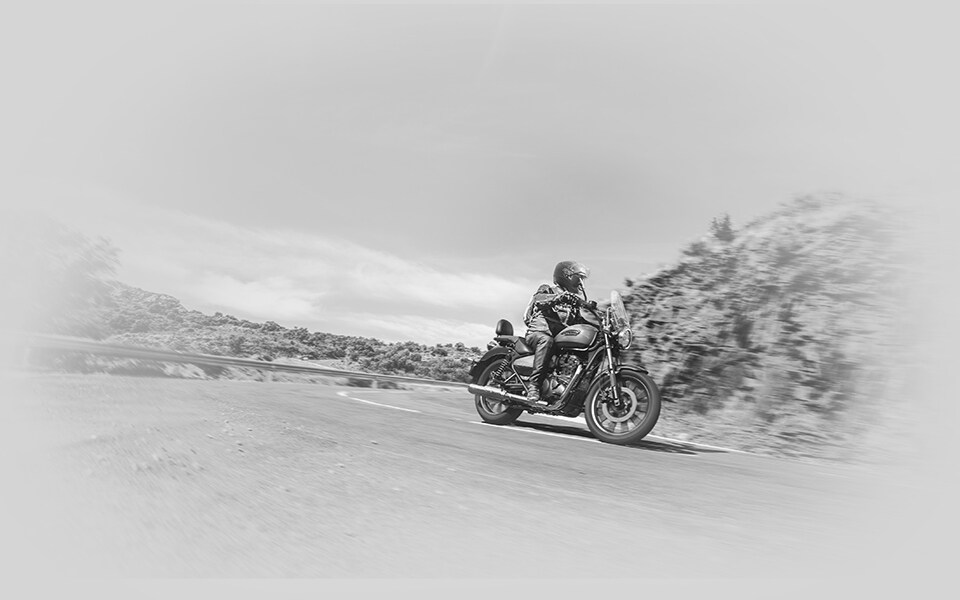
Make-It-Yours (MIY), a unique motorcycle personalisation initiative, goes live. Customers can configure their motorcycle when making a booking on the Royal Enfield App, website or in-store. The Meteor 350 cruiser is launched in India to great acclaim. It has an all-new chassis and engine and features the new Royal Enfield Tripper turn-by-turn navigation device.

Royal Enfield celebrates 120 years of Pure Motorcycling.